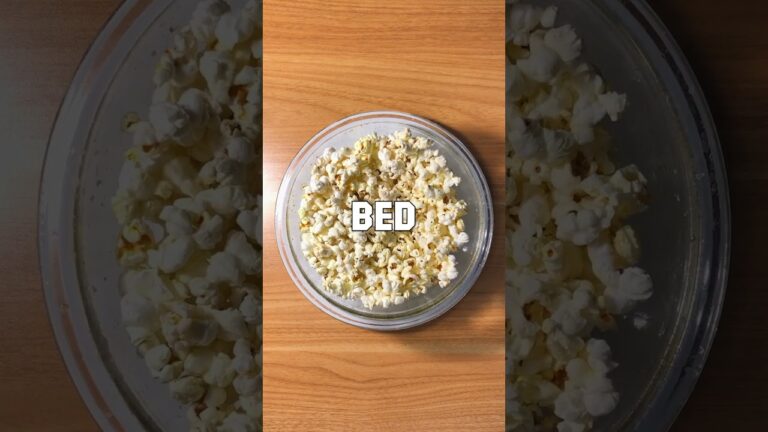[ad_1]
Improving sleep involves addressing multiple factors related to your sleep environment, daily habits, and potential underlying health conditions. Here’s a detailed breakdown of strategies to consider:
1. Establish a Consistent Sleep Schedule:
- Go to bed and wake up at the same time every day: This includes weekends. A regular sleep-wake cycle reinforces your body’s natural circadian rhythm, making it easier to fall asleep and wake up feeling refreshed. Consistency is key, even if you haven’t slept well the night before. Aim for a schedule that allows you to get your required sleep duration (typically 7-9 hours for adults).
- Adjust your schedule gradually: If you need to adjust your sleep schedule, do it in small increments (e.g., 15-30 minutes earlier or later each day) to avoid disrupting your body’s clock.
2. Optimize Your Sleep Environment:
- Create a dark, quiet, and cool bedroom:
- Darkness: Use blackout curtains, blinds, or an eye mask to block out light. Even dim light can interfere with melatonin production, a hormone crucial for sleep.
- Quiet: Use earplugs, a white noise machine, a fan, or a sound conditioner to mask distracting noises. Ensure the room is as soundproof as possible.
- Cool: Keep the room temperature between 60-67 degrees Fahrenheit (15-19 degrees Celsius). A slightly cooler temperature is conducive to sleep.
- Ensure a comfortable bed: Invest in a supportive mattress, pillows, and bedding that suit your preferences. Consider factors like mattress firmness, pillow loft, and the breathability of your bedding materials.
- Remove electronic devices from the bedroom: This includes televisions, computers, and smartphones. The blue light emitted from these devices can suppress melatonin production. If you use your phone as an alarm, keep it face down or in a drawer.
- Minimize clutter: A tidy and organized bedroom promotes relaxation and reduces stress, making it easier to fall asleep.
3. Optimize Daytime Habits:
- Get regular sunlight exposure: Exposure to natural light, especially in the morning, helps regulate your circadian rhythm. Spend time outdoors or use a light therapy box if you live in an area with limited sunlight.
- Engage in regular physical activity: Exercise can improve sleep quality, but avoid strenuous workouts close to bedtime. Aim for at least 30 minutes of moderate-intensity exercise most days of the week.
- Limit caffeine and alcohol consumption:
- Caffeine: Avoid caffeine intake in the afternoon and evening. Caffeine is a stimulant that can interfere with sleep onset and quality.
- Alcohol: While alcohol may initially make you feel drowsy, it can disrupt sleep later in the night and lead to fragmented sleep. Avoid alcohol close to bedtime.
- Avoid large meals and excessive fluids before bed: Eating a heavy meal or drinking too much fluid before bed can lead to discomfort and frequent bathroom trips, disrupting sleep.
- Manage stress: Practice relaxation techniques such as meditation, deep breathing exercises, yoga, or progressive muscle relaxation to reduce stress and anxiety.
- Consider a daytime nap, but limit its duration and timing: Short naps (20-30 minutes) can improve alertness and performance, but long naps or naps taken late in the afternoon can interfere with nighttime sleep.
4. Establish a Relaxing Bedtime Routine:
- Engage in calming activities: Read a book, listen to soothing music, take a warm bath, or practice relaxation exercises.
- Avoid screen time before bed: The blue light emitted from electronic devices can interfere with sleep.
- Prepare for the next day: Organize your belongings, pack your lunch, or make a to-do list to reduce anxiety about the next day.
- Use aromatherapy: Certain essential oils, such as lavender and chamomile, have calming properties and can promote relaxation.
5. Diet and Hydration:
- Stay hydrated throughout the day: Dehydration can affect sleep.
- Consider tryptophan-rich foods: Foods containing tryptophan (e.g., turkey, nuts, seeds) can promote sleep, but the effect is usually minimal.
- Avoid sugary snacks before bed: They can cause blood sugar spikes and crashes that disrupt sleep.
- Consider melatonin-rich foods: Tart cherries and walnuts contain melatonin.
6. Address Underlying Medical Conditions:
- Rule out sleep disorders: Consult a doctor if you suspect you have a sleep disorder such as insomnia, sleep apnea, restless legs syndrome, or narcolepsy.
- Manage chronic pain: Pain can significantly interfere with sleep. Work with your doctor to develop a pain management plan.
- Address mental health conditions: Anxiety, depression, and other mental health conditions can disrupt sleep. Seek professional help if needed.
- Review medications: Some medications can cause insomnia as a side effect. Discuss any concerns with your doctor.
7. Cognitive Behavioral Therapy for Insomnia (CBT-I):
- Consider CBT-I: This is a structured program designed to address the underlying causes of insomnia. It involves techniques such as stimulus control, sleep restriction, cognitive restructuring, and relaxation training. It is considered the gold standard treatment for chronic insomnia.
8. Stimulus Control Therapy:
- Go to bed only when sleepy: If you’re not sleepy, get out of bed and do something relaxing until you feel tired.
- Use your bed only for sleep and sex: Avoid reading, watching TV, or working in bed.
- Get out of bed if you can’t fall asleep within 20 minutes: Go to another room and engage in a relaxing activity until you feel tired, then return to bed.
- Wake up at the same time every day, regardless of how much you slept: This helps to regulate your circadian rhythm.
- Avoid daytime napping: This can weaken your sleep drive.
9. Sleep Restriction Therapy:
- Limit your time in bed: This technique involves reducing the amount of time you spend in bed to match the amount of time you actually sleep. This can initially lead to sleep deprivation, but it can also increase your sleep drive and improve sleep efficiency over time. A sleep specialist should guide this.
10. When to Seek Professional Help:
- Chronic sleep problems: If you have persistent difficulty falling asleep or staying asleep, or if you wake up feeling tired despite getting enough sleep, consult a doctor.
- Suspected sleep disorder: If you suspect you have a sleep disorder, such as sleep apnea, restless legs syndrome, or narcolepsy, see a sleep specialist.
- Sleep problems that interfere with daily life: If your sleep problems are affecting your mood, performance at work or school, or relationships, seek professional help.
- Trying over-the-counter sleep aids: If you are considering using over-the-counter sleep aids regularly, talk to your doctor first.
Remember that improving sleep is a process that may require experimentation and adjustments. It’s important to be patient and consistent with your efforts.
[ad_2]

